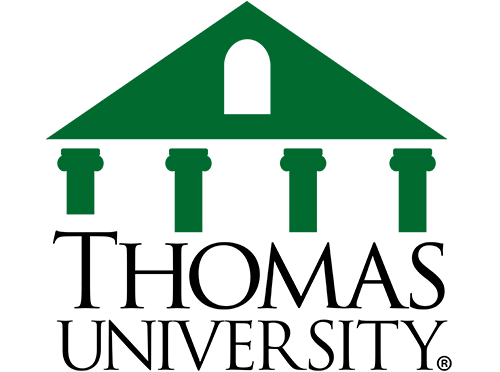Five TU students present at regional biology conference
Post Published On:Five Thomas University undergraduate students were selected to present their research projects at the Association of Southeastern Biologists Annual Meeting held virtually March 24-26.
Click here to watch a video about their projects.
“Undergraduate research is very important on many different levels,” said Dr. LeAnna Willison, Assistant Professor of Biology, and one of the advisors for the undergraduate researchers. “One of the biggest reasons that it’s important is it engages students in scientific practice. So many times in science classes students learn facts. They memorize facts, but they don’t actually engage in the practice of science where they’re designing unique experiments, collecting data, analyzing that data and then drawing conclusions based on their results. Undergraduate research really gives students the opportunity to do science, to get their hands on a topic they’re really passionate about, and they’re really interested in. It engages them in the process of science, which prepares them to be better individuals and engage in society as a whole.”
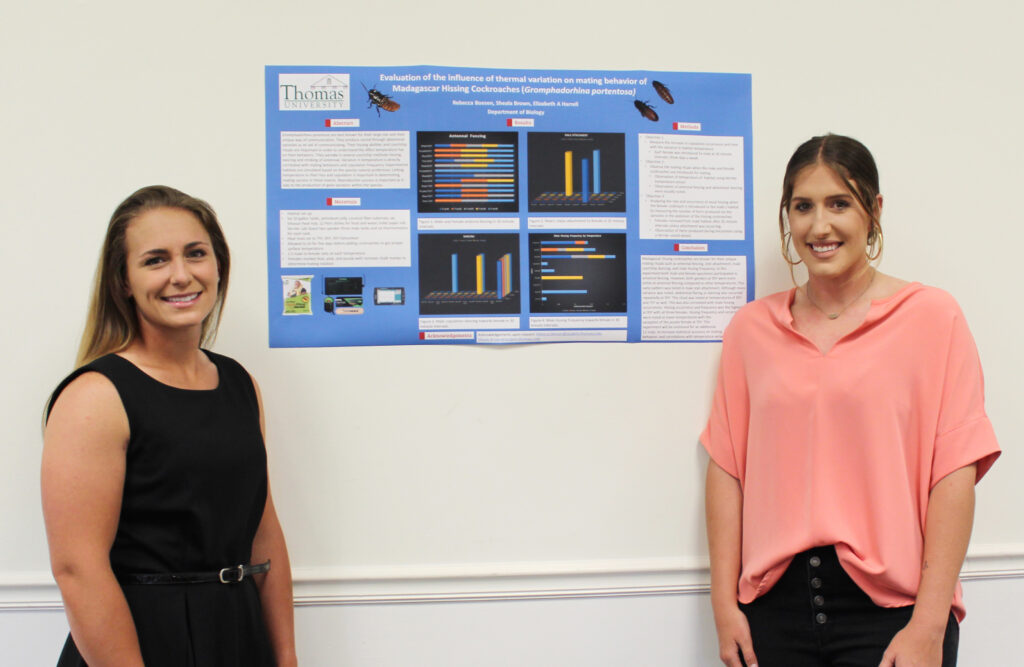
Rebecca Boesen and Sheala Brown presented their project “Evaluation of the influence of thermal variation on mating behavior of Madagascar Hissing Cockroaches.” They received a grant from the Tri-Beta National Honor Society in Biology for their research. Boesen and Brown determined specific temperatures at which the cockroaches were more likely to mate. Because the Madagascar hissing cockroach is similar to cockroaches found in homes in the U.S., they said their research can be used to determine whether U.S. homes kept at similar warm temperatures in the winter might attract the pests.
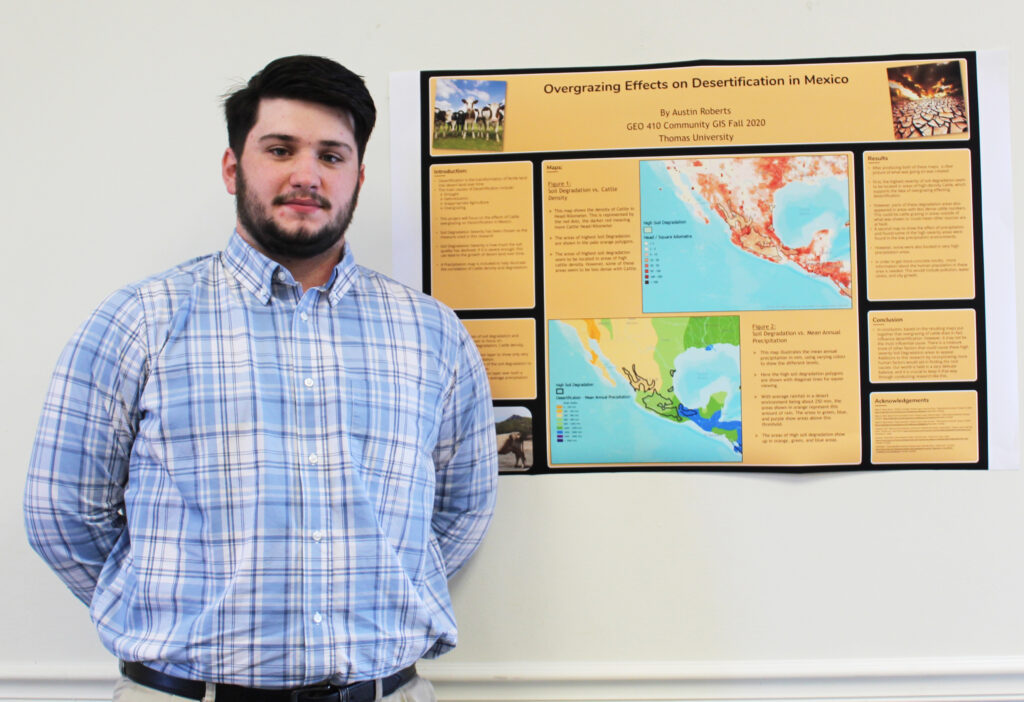
Austin Roberts presented his project “Overgrazing Effects on Desertification in Mexico,” which used geospatial information systems to compare soil degradation and cattle density in areas of Mexico. Roberts also examined annual precipitation in the areas to determine whether that was a factor. He found that overgrazing of cattle was a factor, but that other factors may play a role in desertification.
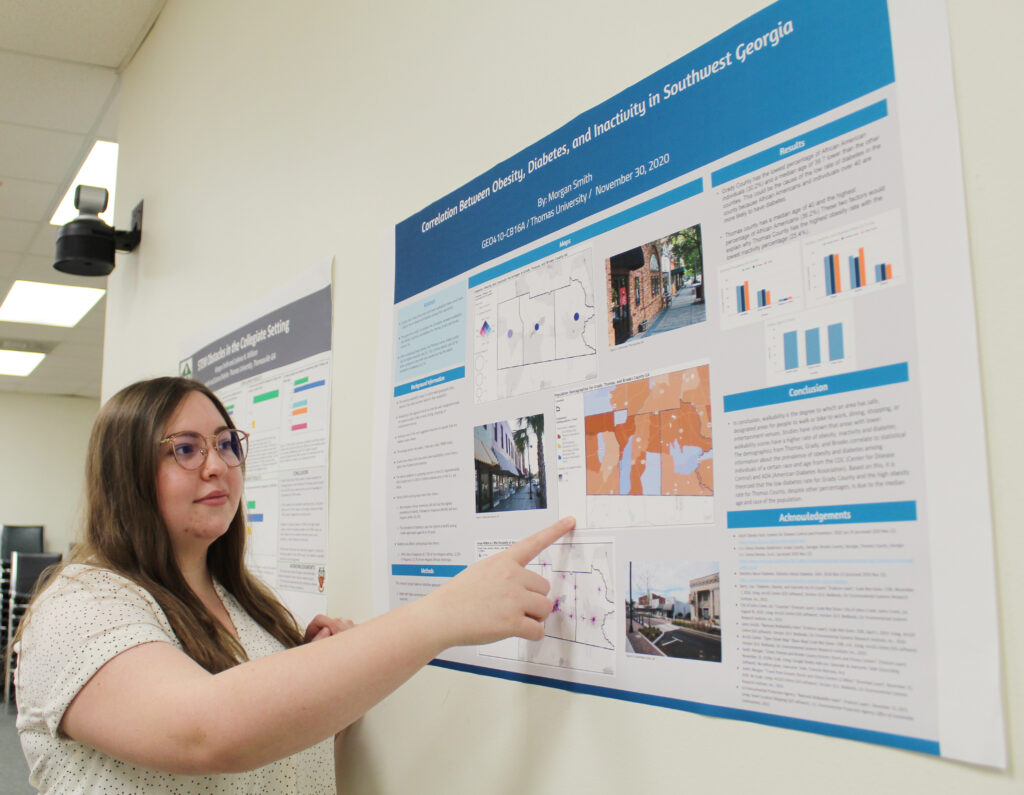
Morgan Smith presented two research projects at the conference. She used geospatial information for her project “Correlation Between Obesity, Diabetes, and Inactivity in Southwest Georgia” in which she examined walkability scores for Grady, Brooks and Thomas counties with their obesity and diabetes rates. Smith explained that she chose walkability scores because walking is one of the most recommended exercises for people dealing with obesity and/or diabetes, and previous studies have found that communities with lower walkability scores tend to have higher rates of obesity, inactivity and diabetes.
Smith also presented her research project “STEM Obstacles in the Collegiate Setting,” for which she received a Tri Beta grant to conduct the research. For this project, Smith conducted a survey of TU students about whether they chose a science-related major and why or why not. Smith discovered that most of the students who responded to the survey did not choose science majors with a variety of reasons why.
Smith analyzed the major selection process by conducting an anonymous survey of TU undergraduate students about why they chose science or non-science majors. She found that 52 percent of the non-science majors who answered her survey did not know anyone who worked in a STEM career. Smith said she believes that those students may not know about all the possibilities of a STEM career.
“The main conclusion that I got from this is that positive peer interaction really fosters scientific community in STEM students and is really important for retaining individuals in STEM,” she said.
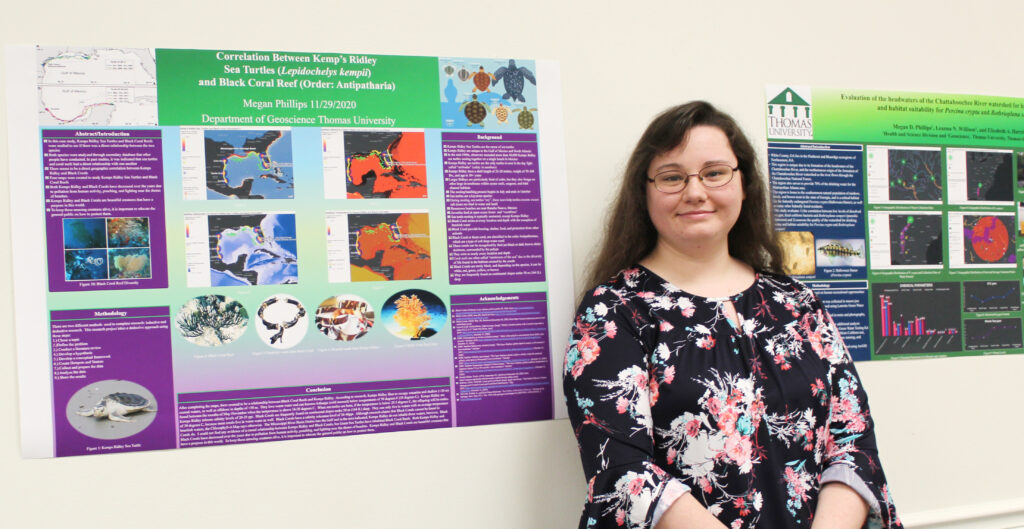
Megan Phillips also presented two research projects. For her research project “Evaluation of the headwaters of the Chattahoochee River watershed for human consumption and habitat suitability for Percina crypta and Bothrioplana semperi,” she received a Tri Beta grant. Phillips took water samples from streams and rivers that form the headwaters of the Chattahoochee River, which provides 70 percent of the drinking water for the metropolitan Atlanta area. She tested the quality of the water discovered possible e. coli contamination that threatens the Halloween darter, an endangered fish living in the area, as well as a microtubellarian, a type of worm she found in one water sample. Phillips went on to win third place in the District I John C. Johnson Award for Excellence Poster Presentation with this project.
Phillips also presented her project “Correlation Between Kemp’s Ridley Sea Turtles and Black Coral Reef.” Phillips researched whether there was a direct relationship between these two species. She used geospatial information to determine that both species lived in the same areas. However, Phillips could find no other evidence of a causal relationship between the two. She did emphasize the importance of protecting both species, whose numbers have declined due to pollution, poaching and lighting along beaches.
“One of the greatest things that you experience when you’re growing up and you’re desiring to be a scientist is that you want to explore,” said Elizabeth Harrell, Assistant Professor of Biology, Director of the GAPP Center and one of the advisors of the undergraduate researchers. “Here at Thomas University we prepare our students by allowing them and encouraging them to do undergraduate research. That research that they do in the classroom – the presentations, the practices that they have not only among their peers but also among professionals – is preparing them for graduate school, is preparing them for nursing school, is preparing them to be in a business field, is preparing them for all different aspects of life.”

